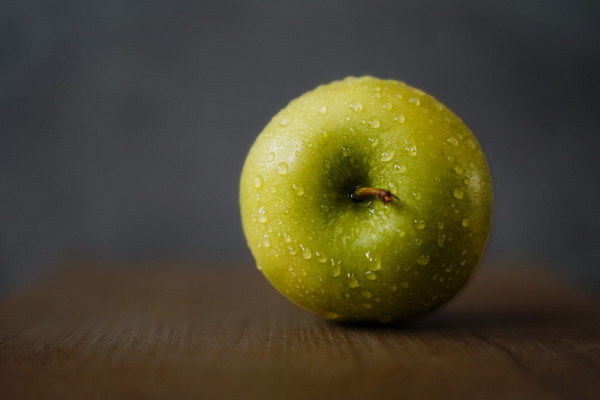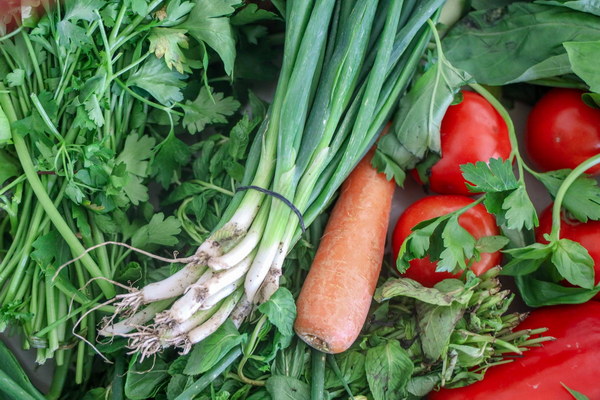Boosting Qi and Eliminating Dampness A Comprehensive Guide to Tackling Qi Deficiency and Dampness in Traditional Chinese Medicine
In Traditional Chinese Medicine (TCM), the concept of Qi and Dampness plays a significant role in understanding and treating various health conditions. Qi, or vital energy, is the fundamental substance that animates and sustains the body. Dampness, on the other hand, is a pathological condition that arises from an imbalance in the body's fluids, leading to a range of symptoms. This article will delve into the causes and symptoms of Qi Deficiency and Dampness, and offer a comprehensive guide to boost Qi and eliminate Dampness through TCM practices.
Causes and Symptoms of Qi Deficiency and Dampness
Qi Deficiency and Dampness are often interrelated conditions that can arise from various factors, including poor diet, lack of exercise, and external environmental influences. Here are some common causes and symptoms:
Causes:
1. Poor diet: Consuming excessive cold, raw, or heavy foods can lead to dampness accumulation in the body.
2. Lack of exercise: Physical inactivity can lead to a stagnant Qi, which may contribute to dampness formation.
3. Environmental factors: Living in a damp, cold, or humid environment can exacerbate dampness.
4. Emotional stress: Chronic stress can weaken the body's resistance, making it more susceptible to dampness.
Symptoms:
1. Tiredness and fatigue: Qi Deficiency can cause a persistent feeling of exhaustion and weakness.
2. Weight gain: Dampness accumulation can lead to water retention and weight gain.
3. Edema: Swelling in the ankles, feet, and other areas due to dampness.
4. Digestive issues: Nausea, bloating, and diarrhea can occur due to dampness affecting the spleen and stomach.
5. Mucus production: Excessive mucus production in the respiratory and digestive systems.
6. Poor concentration and memory: Qi Deficiency can affect cognitive function, leading to difficulties in concentration and memory.
Boosting Qi and Eliminating Dampness: TCM Practices
TCM offers a holistic approach to treat Qi Deficiency and Dampness, focusing on balancing the body's internal environment. Here are some TCM practices to help boost Qi and eliminate Dampness:
1. Diet: Adopt a diet that is rich in warm, cooked, and easily digestible foods. Avoid cold, raw, and heavy foods that may exacerbate dampness. Incorporate foods that are known to boost Qi, such as ginger, turmeric, and ginseng.
2. Herbs and Supplements: TCM herbs can be used to treat Qi Deficiency and Dampness. Common herbs include:
- Astragalus (Huang Qi): Known for its Qi-boosting properties.
- Ginseng (Ren Shen): Beneficial for replenishing Qi and improving vitality.
- Poria (Fu Ling): Helps to drain dampness and relieve edema.
- Cinnamon (Rou Gui): Known for its warming properties that help to eliminate dampness.
3. Acupuncture: Acupuncture can help to balance the body's energy, boost Qi, and eliminate Dampness. Specific points are chosen based on individual symptoms and constitution.
4. Tai Chi and Qigong: These practices involve gentle, flowing movements that help to promote the flow of Qi and strengthen the body's resistance to dampness.

5. Lifestyle adjustments: Ensure adequate sleep, manage stress levels, and engage in regular exercise to maintain a healthy Qi and prevent dampness formation.
Conclusion
Qi Deficiency and Dampness are common conditions in TCM that can lead to a range of symptoms and health issues. By adopting a holistic approach that includes diet, herbs, acupuncture, and lifestyle adjustments, one can effectively boost Qi and eliminate Dampness. Incorporating these TCM practices into your daily routine can lead to improved energy levels, better digestion, and overall well-being.









